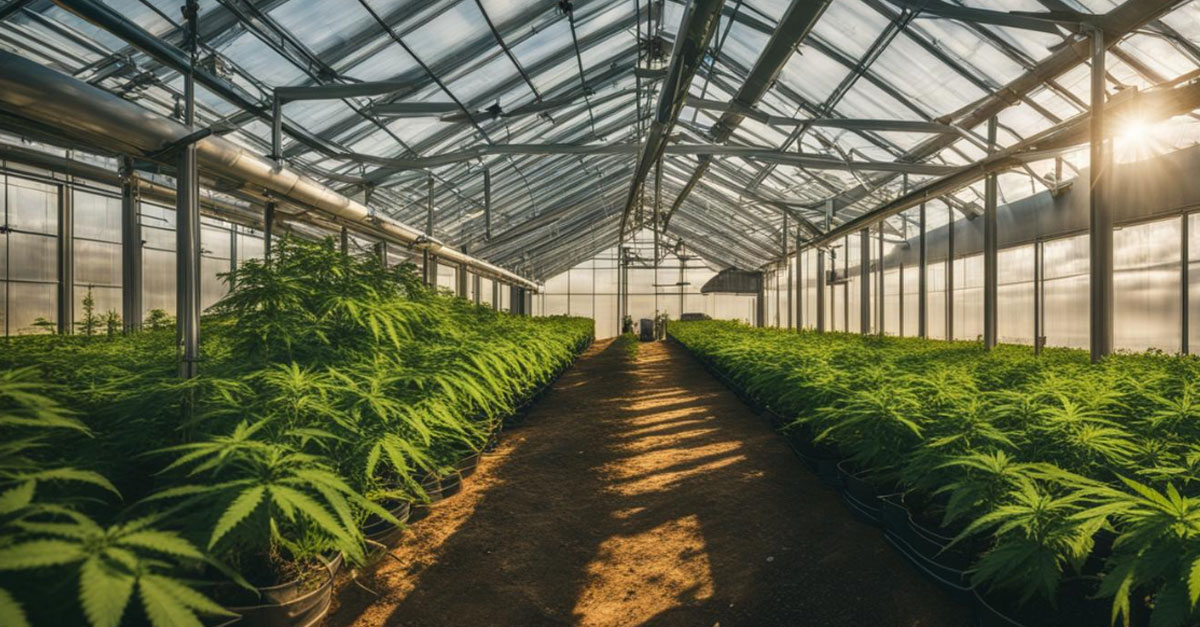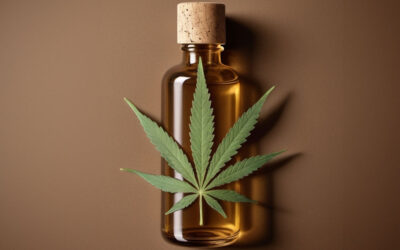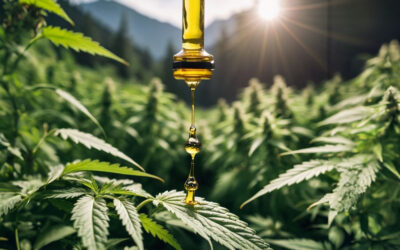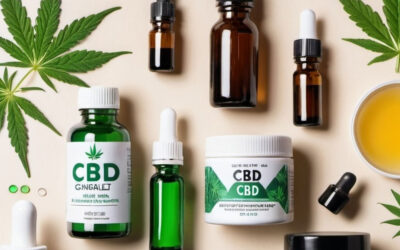Going Green: The Rise of Sustainable Cannabis Practices

Going Green: The Rise of Sustainable Cannabis Practices
The cannabis market in North America is set to explode, growing from $9.2 billion in 2017 to an expected $50 billion in the next ten years. Global spending on cannabis has also hit new peaks, drawing attention to the importance of sustainable weed cultivation. This shift away from high water and energy use is sparking innovation across the industry.
The market is rapidly changing to focus on green, eco-friendly practices. These practices are important for keeping our planet healthy and point to a growing trend of eco-friendly cannabis businesses. Let’s take a look at what this new age of cannabis practices entails and what it looks like to “go green”.
Innovative Water Conservation
In places like California, the boom in cannabis farms raises environmental concerns. Traditional cultivation methods demand a staggering 22 liters of water per plant daily. New state guidelines are now enforcing water rights registration. These aim to curb unsustainable water use in farming. They include rainwater collection and precision drip irrigation systems. Such steps significantly cut down on water consumption.
Adopting Renewable Energy Sources
Cultivators in the cannabis industry are switching to renewable energy sources and using LED lighting to reduce their environmental impact and cut down on power usage. These eco-friendly alternatives provide both environmental and economic benefits over time.
By adopting renewable energy, the cannabis industry is making a significant shift towards sustainability, reducing reliance on non-renewable power sources and decreasing greenhouse gas emissions associated with traditional energy.
Holistic Farming: Soil Health and Biodiversity
Organic cultivation methods are now a staple in the cannabis sector. These practices avoid harmful chemicals, protect biodiversity, and enhance soil health. They are crucial for sustainable ecosystems and play a vital role in reducing the carbon footprint of cannabis operations.
Although USDA organic certification is not available for cannabis because of federal regulations, alternatives like OCal and Sun+Earth have emerged. These certifications establish clear standards for organic and sustainable production. They support the idea that practices good for the environment are also good for the consumer. This approach leads to safer, cleaner products and supports a healthy agricultural foundation.
By fostering a healthier environment, organic farming not only supports cannabis growth but also supports the broader ecological balance.
Carbon Footprint Reduction
In an effort to minimize emissions, the cannabis industry is focusing on local sourcing and reducing transportation needs. These strategies have also notably helped decrease the number of illegal cannabis farms, known as trespass grows, in Oregon since its legalization.
By sourcing materials locally and reducing the distance products travel, the cannabis industry significantly cuts down on its overall carbon emissions, contributing to a cleaner and more sustainable environment.
Sustainable Packaging
The cannabis industry is now focusing more on sustainable practices in packaging too. According to a PricewaterhouseCoopers survey, 50% of global consumers have become more eco-friendly since COVID-19. This has led to a significant increase in demand for biodegradable hemp packaging. The push for environmental standards in cannabis products has never been stronger.
Most consumers expect brands to make their packaging recyclable. However, traditional plastics like HDPE and PET have low recyclability rates. With this challenge, companies are now transforming their packaging strategies to promote cannabis industry waste reduction.
Consumer Safety
In a market often filled with unreliable claims and varying quality, it’s crucial to have lab testing for cannabis purity and certification for cannabis products. The FDA has identified issues with CBD products, such as contamination and inaccurate labeling of CBD concentrations. Therefore, clear and comprehensive testing is essential.
This testing maintains the integrity of organic cannabis products, ensuring they are free from pesticides, heavy metals, and unexpected levels of THC. Such measures provide the transparency and sustainability that consumers expect and deserve.
_______________
As the cannabis market keeps growing rapidly, we in the industry are focusing on being more environmentally friendly. We’re using renewable energy and coming up with new ways to save water. We’re also farming in ways that improve the soil and attract good insects, helping create a healthier environment. Regulations are helping us use water more wisely and we’re changing our packaging to be better for the environment. This shift to green practices is not just good for Earth; it also makes our products safer and keeps our industry strong for the future. As we keep improving, these changes are crucial for taking care of our planet and keeping the cannabis industry sustainable.
Latest GreenCore News
CBGA: The Mother of All Cannabinoids
CBGA: The Mother of All Cannabinoids CBGA, often called the "mother of all cannabinoids," is gaining significant attention. This foundational cannabinoid is showing promise in reducing seizures and treating conditions like insomnia and chronic pain. Recently, its...
Cannabis Concentrate Spotlight: Rick Simpson Oil
Cannabis Concentrate Spotlight: Rick Simpson Oil Rick Simpson Oil has become a cornerstone in the world of cannabis products. Renowned for its versatility, this concentrate offers a multitude of benefits for both medical patients and recreational users.In this blog,...
CBD 101: Properties, Production, and Potential
CBD 101: Properties, Production, and Potential CBD has rapidly evolved from a little-known compound to a household term. But while it has become a ubiquitous term, many remain unclear on what cannabidiol actually is. In this blog, Green Core Specialty Insurance...
Contact Us
Office Location
1600 Golf Road, Suite 1200
Rolling Meadows, IL 60008
Office Hours
M-F: 8am - 6pm
Phone
847-201-4600



